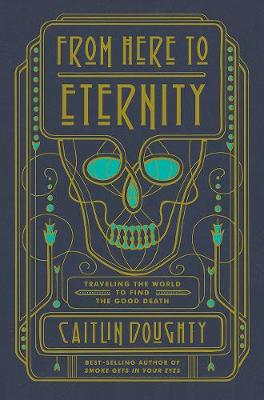Reviewed by Beth C. on
Reading updates
- Started reading
- 7 April, 2018: Finished reading
- 7 April, 2018: Reviewed
- Started reading
- Finished reading
- 7 April, 2018: Reviewed

Fascinated by our pervasive fear of dead bodies, mortician Caitlin Doughty set out to discover how other cultures care for the dead. From Here to Eternity is an immersive global journey that introduces compelling, powerful rituals almost entirely unknown in America.
In rural Indonesia, she watches a man clean and dress his grandfather’s mummified body, which has resided in the family home for two years. In La Paz, she meets Bolivian natitas (cigarette-smoking, wish-granting human skulls), and in Tokyo she encounters the Japanese kotsuage ceremony, in which relatives use chopsticks to pluck their loved-ones’ bones from cremation ashes.
With boundless curiosity and gallows humor, Doughty vividly describes decomposed bodies and investigates the world’s funerary history. She introduces deathcare innovators researching body composting and green burial, and examines how varied traditions, from Mexico’s Días de los Muertos to Zoroastrian sky burial help us see our own death customs in a new light.
Doughty contends that the American funeral industry sells a particular—and, upon close inspection, peculiar—set of "respectful" rites: bodies are whisked to a mortuary, pumped full of chemicals, and entombed in concrete. She argues that our expensive, impersonal system fosters a corrosive fear of death that hinders our ability to cope and mourn. By comparing customs, she demonstrates that mourners everywhere respond best when they help care for the deceased, and have space to participate in the process.
Exquisitely illustrated by artist Landis Blair, From Here to Eternity is an adventure into the morbid unknown, a story about the many fascinating ways people everywhere have confronted the very human challenge of mortality.